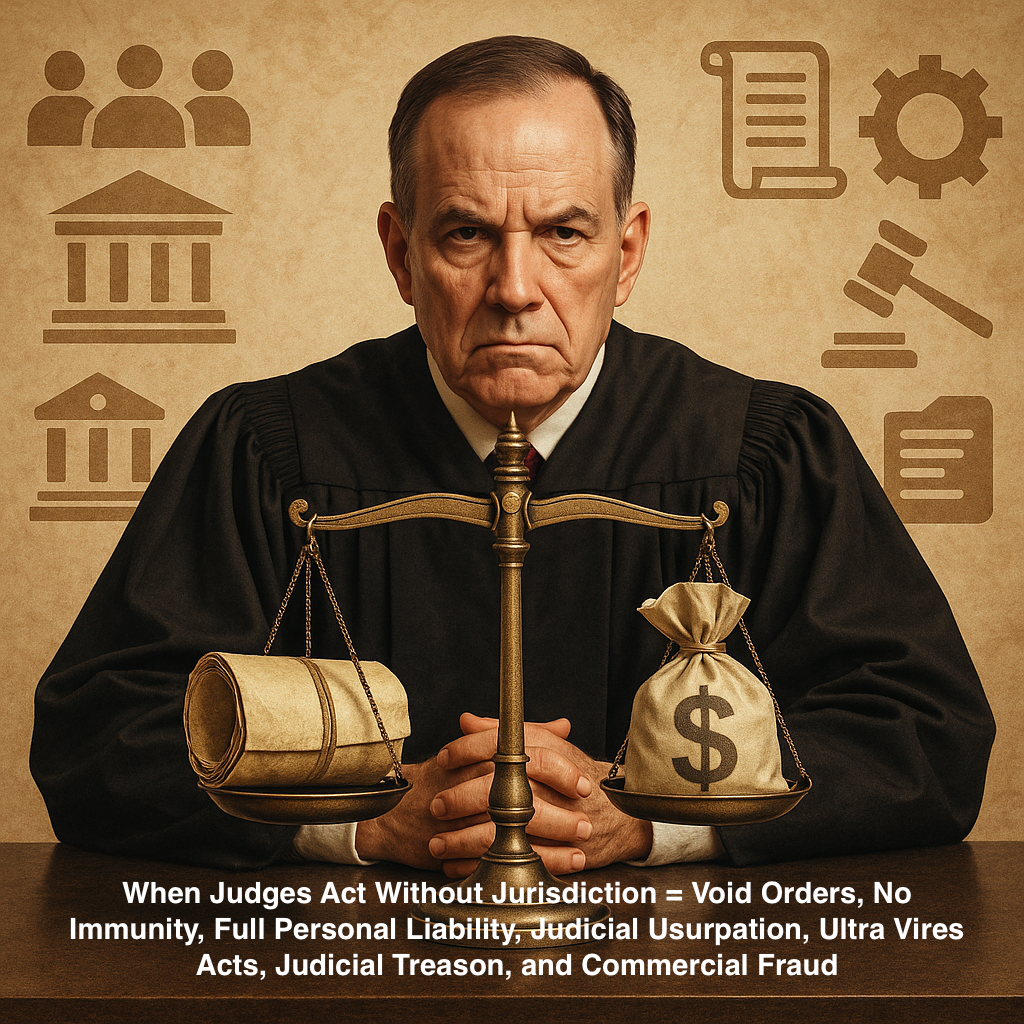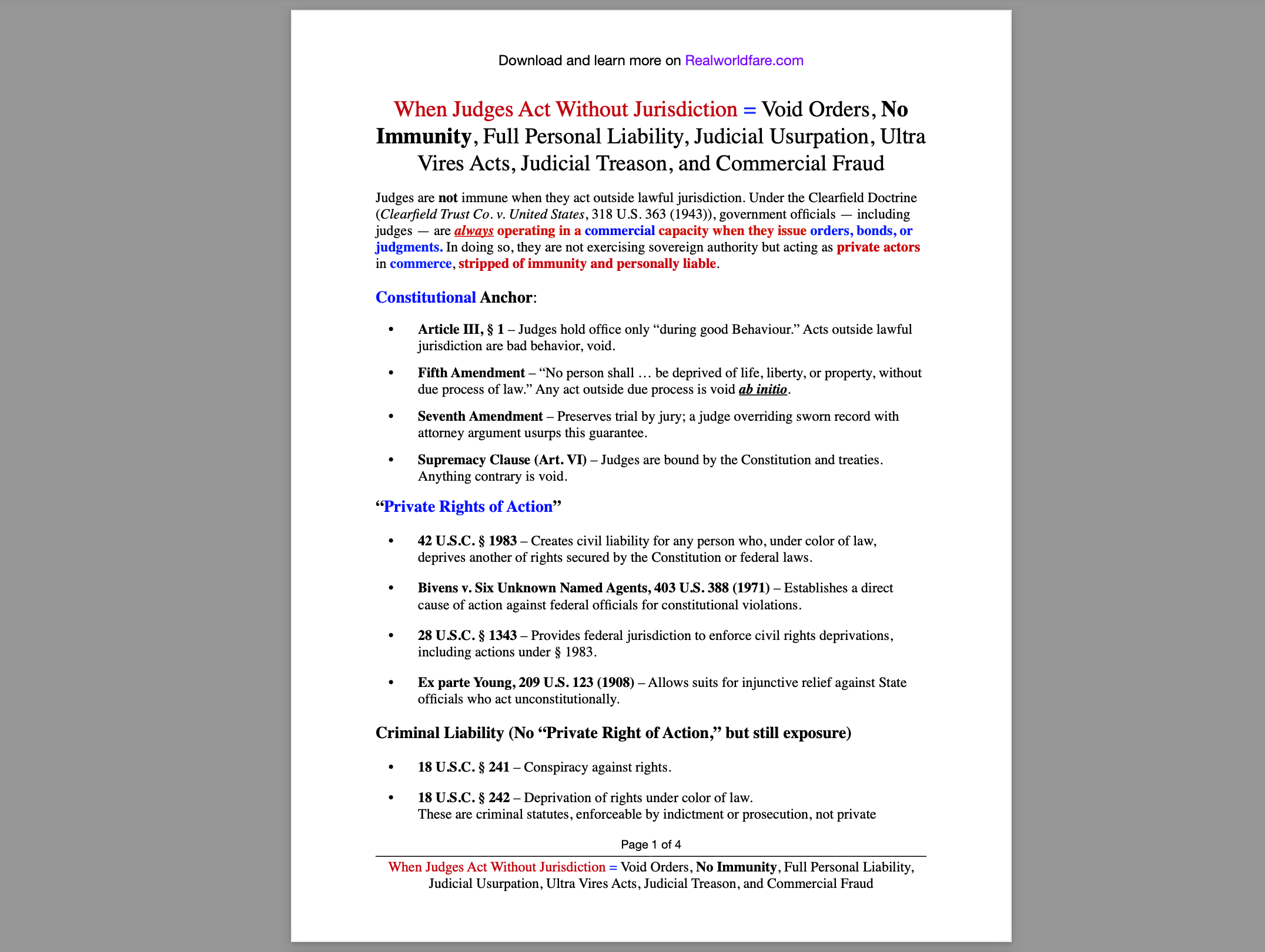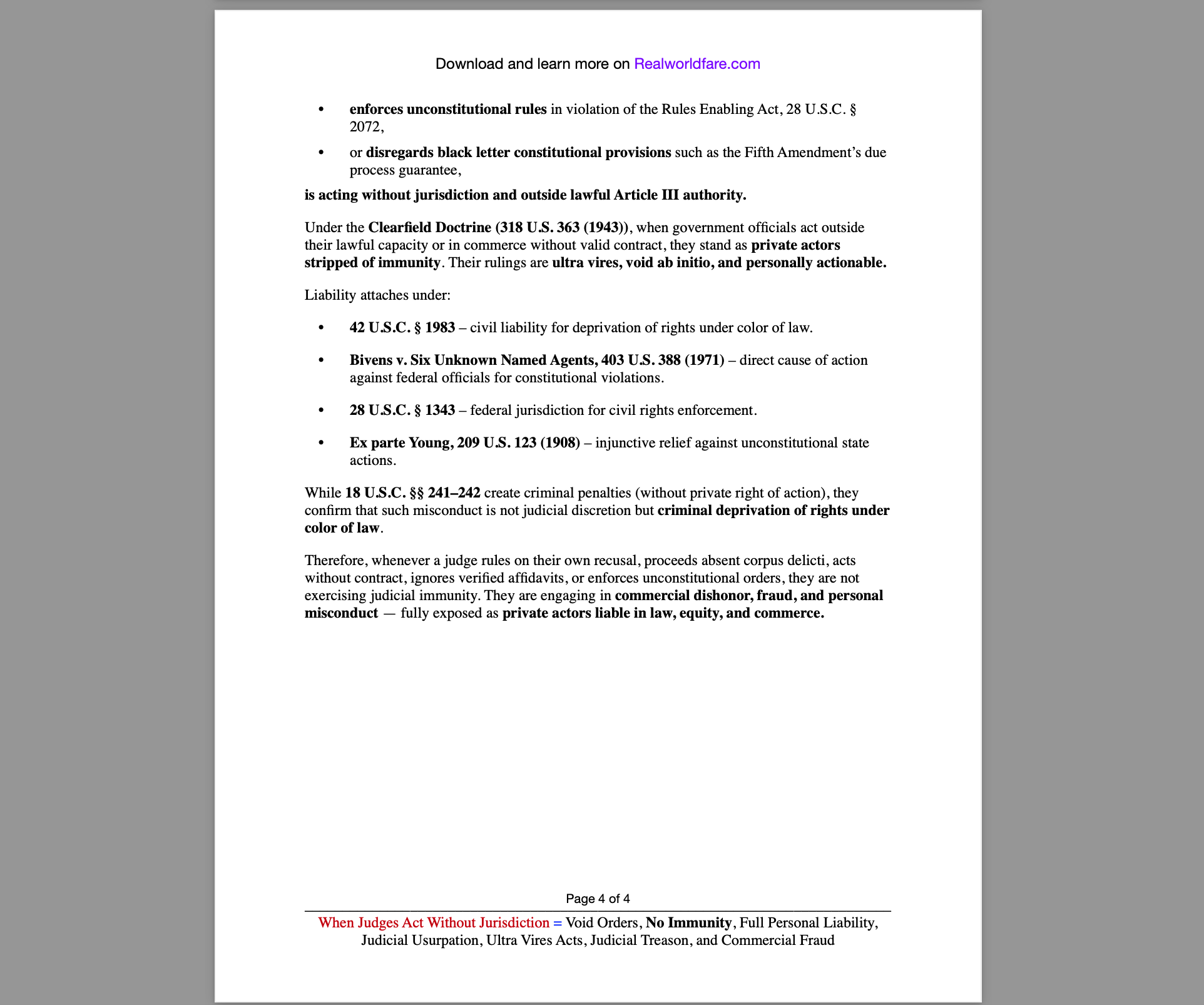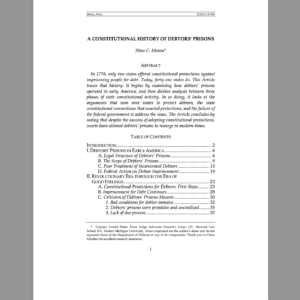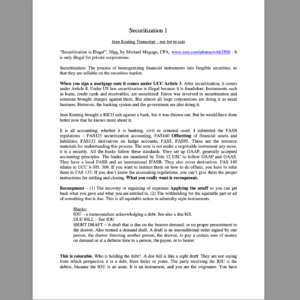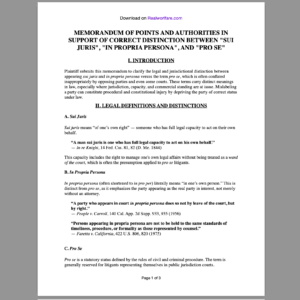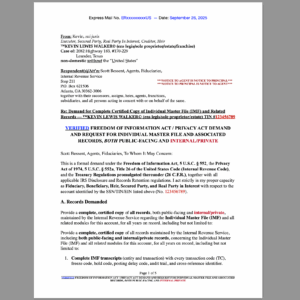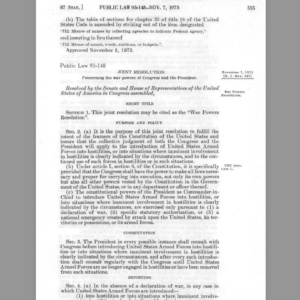Judges are not immune when they act outside lawful jurisdiction. Under the Clearfield Doctrine (Clearfield Trust Co. v. United States, 318 U.S. 363 (1943)), government officials — including judges — are always operating in a commercial capacity when they issue orders, bonds, or judgments. In doing so, they are not exercising sovereign authority but acting as private actors in commerce, stripped of immunity and personally liable.
Constitutional Anchor:
- Article III, § 1 – Judges hold office only “during good Behaviour.” Acts outside lawful jurisdiction are bad behavior, void.
- Fifth Amendment – “No person shall … be deprived of life, liberty, or property, without due process of law.” Any act outside due process is void ab initio.
- Seventh Amendment – Preserves trial by jury; a judge overriding sworn record with attorney argument usurps this guarantee.
- Supremacy Clause (Art. VI) – Judges are bound by the Constitution and treaties. Anything contrary is void.
“Private Rights of Action”
- 42 U.S.C. § 1983 – Creates civil liability for any person who, under color of law, deprives another of rights secured by the Constitution or federal laws.
- Bivens v. Six Unknown Named Agents, 403 U.S. 388 (1971) – Establishes a direct cause of action against federal officials for constitutional violations.
- 28 U.S.C. § 1343 – Provides federal jurisdiction to enforce civil rights deprivations, including actions under § 1983.
- Ex parte Young, 209 U.S. 123 (1908) – Allows suits for injunctive relief against State officials who act unconstitutionally.
Criminal Liability (No “Private Right of Action,” but still exposure)
- 18 U.S.C. § 241 – Conspiracy against rights.
- 18 U.S.C. § 242 – Deprivation of rights under color of law.
These are criminal statutes, enforceable by indictment or prosecution, not private lawsuits. However, they frame the criminal exposure for officials who act outside jurisdiction.
The Commercial Nature of Court Actions
All court actions are inherently commerce under UCC principles:
- Bonds, orders, and judgments are monetized, traded, and enforced as commercial paper.
- Dishonor in the judicial process is not just legal dishonor but commercial dishonor — triggering liability in law and equity.
Thus, when judges ignore jurisdictional limits, fail to honor affidavits, or enforce unconstitutional rulings, they are not acting as neutral judicial officers but as private parties in commerce, stripped of immunity and exposed to personal liability.
⚖️ How and When “Judges” Act Without Jurisdiction
1. Ruling on Their Own Recusal
- 28 U.S.C. § 144 – Filing of a sufficient affidavit of bias requires reassignment; the judge cannot pass on their own disqualification.
- 28 U.S.C. § 455 – Disqualification is mandatory where impartiality “might reasonably be questioned.” Any continuation thereafter is void.
2. Ignoring Mandatory Disqualification
- Once a verified affidavit is filed, recusal is automatic. Continuing after refusal to step aside is ultra vires and void.
- Caperton v. A.T. Massey Coal Co., 556 U.S. 868 (2009) – Due process is violated when a judge with probable bias fails to recuse.
3. Absence of Corpus Delicti
- No crime or civil liability exists without an injured party + unlawful act.
- Proceeding without corpus delicti violates the Fifth Amendment due process guarantee and renders proceedings void ab initio.
4. No Contract to Compel Performance
- Jurisdiction requires a valid obligation, nexus, or contract.
- Consent makes the law (maxim). Without consent or contract, no performance can be compelled.
5. Jurisdiction Challenged, and Not Proven
- Jurisdiction is never presumed; it must be proven on the record when challenged.
- Lopez v. United States, 514 U.S. 549 (1995) – Limits of jurisdiction must be shown.
- Any act without proven jurisdiction = usurpation of power.
6. Ignoring Black Letter Law
- Ignoring constitutional and statutory mandates violates Article VI (Supremacy Clause) and Fifth Amendment due process.
- Acts outside clear law are void.
7. Ignoring Verified Filings
- 28 U.S.C. § 1746 – Verified filings affidavits under penalty of perjury = sworn (or affirmed) testimony.
- FRCP 8(b)(6) – Allegations not denied are admitted.
- Taking attorney pleadings over sworn affidavits denies due process.
8. Fraud by Omission
- Fraud vitiates everything (maxim). Concealment of material facts makes all resulting orders null and void.
- Hazel-Atlas Glass Co. v. Hartford-Empire Co., 322 U.S. 238 (1944) – Fraud on the court invalidates judgments.
9. Fabricating or Misstating Law
- Citing inapplicable statutes or fabricating law is ultra vires.
- Acts beyond granted authority are void.
10. Ignoring Binding Rules
- FRCP 54, 55, 56 govern judgments, defaults, and summary judgment.
- Failure to follow binding rules strips the court of lawful process.
11. Violating the Rules Enabling Act
- 28 U.S.C. § 2072(b) – Court rules cannot “abridge, enlarge or modify any substantive right.”
- Any enforcement of unconstitutional rules abridging rights is void and exposes liability.
⚖️ Final Conclusion
A judge who:
- refuses mandatory disqualification under 28 U.S.C. §§ 144, 455 when lawfully challenged by affidavit,
- proceeds without corpus delicti (injured party + unlawful act),
- acts without a valid contract or agreement to compel performance or jurisdiction,
- ignores verified affidavits sworn (or affirmed) under 28 U.S.C. § 1746 and admitted under Fed. R. Civ. P. 8(b)(6),
- fabricates or misstates law to justify ultra vires rulings,
- enforces unconstitutional rules in violation of the Rules Enabling Act, 28 U.S.C. § 2072,
- or disregards black letter constitutional provisions such as the Fifth Amendment’s due process guarantee,
is acting without jurisdiction and outside lawful Article III authority.
Under the Clearfield Doctrine (318 U.S. 363 (1943)), when government officials act outside their lawful capacity or in commerce without valid contract, they stand as private actors stripped of immunity. Their rulings are ultra vires, void ab initio, and personally actionable.
Liability attaches under:
- 42 U.S.C. § 1983 – civil liability for deprivation of rights under color of law.
- Bivens v. Six Unknown Named Agents, 403 U.S. 388 (1971) – direct cause of action against federal officials for constitutional violations.
- 28 U.S.C. § 1343 – federal jurisdiction for civil rights enforcement.
- Ex parte Young, 209 U.S. 123 (1908) – injunctive relief against unconstitutional state actions.
While 18 U.S.C. §§ 241–242 create criminal penalties (without private right of action), they confirm that such misconduct is not judicial discretion but criminal deprivation of rights under color of law.
Therefore, whenever a judge rules on their own recusal, proceeds absent corpus delicti, acts without contract, ignores verified affidavits, or enforces unconstitutional orders, they are not exercising judicial immunity. They are engaging in commercial dishonor, fraud, and personal misconduct — fully exposed as private actors liable in law, equity, and commerce.
